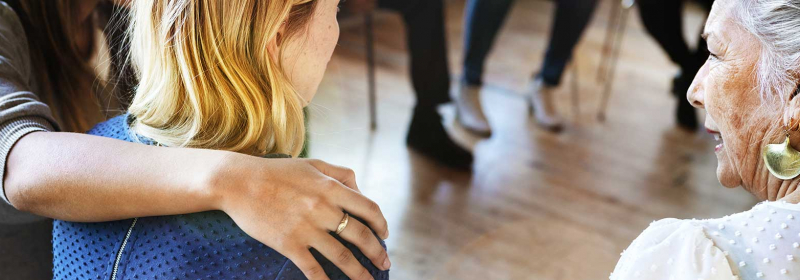There's more to being a cancer survivor than simply completing cancer treatment.
Being a cancer survivor goes deeper than simply completing cancer treatment. It means you’ve pushed through unique physical, mental, emotional, and spiritual challenges and come out on the other side. It also means that you’re an inspiration to others, even if you aren’t feeling like the person you once were. You’re living proof that cancer patients can become cancer survivors who live active, full, healthy lives.
Initially, it might be overwhelming to think about what comes next— what you’d like to do with family and friends, your responsibilities, and your future. You might also have moments when you question what you can or should be doing as a cancer survivor, as well as what you should avoid. And, like many survivors, the thought of cancer recurrence may weigh on your mind.
Understanding the New Normal of Cancer Survivorship
The transition from cancer patient to cancer survivor can be quite an adjustment.
While in treatment, you had quick access to your cancer treatment providers, making it a lot more convenient to ask questions about how you’re feeling and what’s normal. Now that treatment is over, these opportunities are less frequent, which could leave you feeling anxious as you adapt to what your new “normal” should feel like. If you start to feel different or have new side effects, it is important that you reach out to your doctor. It is also important that you go to your scheduled follow up appointments so your physical and mental health can be monitored.
Of course, the number one question on the minds of most every cancer survivor is: will my cancer come back? Because there is no definite way of knowing this, it’s unhealthy to obsess over it. Instead, do all you can to focus on more practical concerns, such as:
- How will you transition back into your pre-cancer roles/responsibilities within the immediate family?
- Will you go back into the workforce? If so, will it be full-time or part-time?
- Are there any post-cancer financial concerns that I need to take care of? If so, how?
- What steps can you take to protect yourself against post-cancer depression and anxiety?
- What is the best way to ensure you’re making healthy choices regarding nutrition, physical activity, and mental health self-care?
- How will you deal with friends or co-workers who may not know exactly how to treat you?
- How will you incorporate exercise into your routine that’s both effective and safe?

There’s No Reason to Do Survivorship Alone
Fortunately, there are many organizations and resources you can turn to for expert advice on the many questions you and your family may have about cancer survivorship.
- Consider joining a support group with other cancer survivors who can relate to what you are going through.
- Share what you’ve learned during your cancer journey by becoming a mentor for a cancer patient. Visit the American Cancer Society website to learn more about how survivors can easily serve in this role.
- When looking for information about a condition or side effect, be sure to seek out reliable online resources.
- Refer to your physician as the primary source of information related to your health.
At Minnesota Oncology, our survivorship providers are here to help you prepare for this next chapter. Be sure to schedule your survivorship appointment today at any of our locations.
